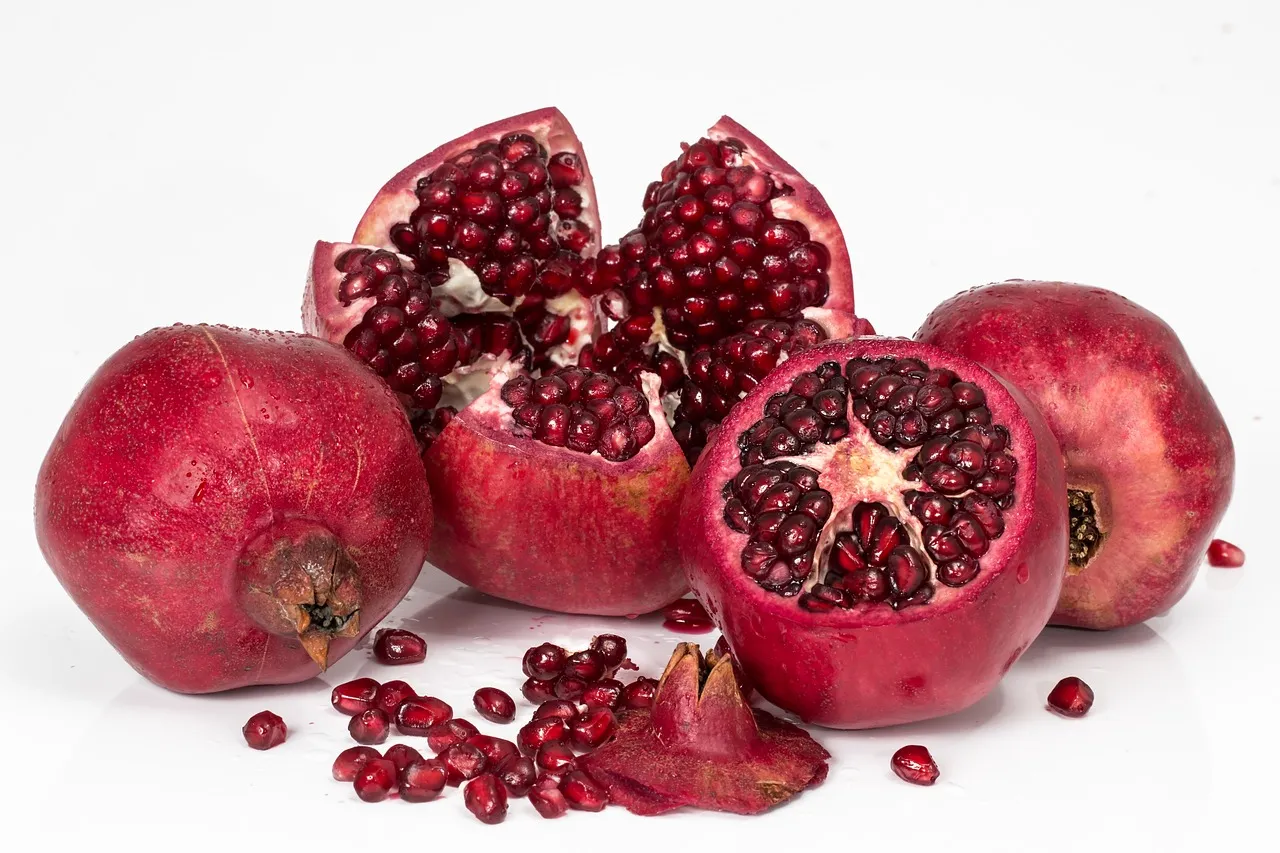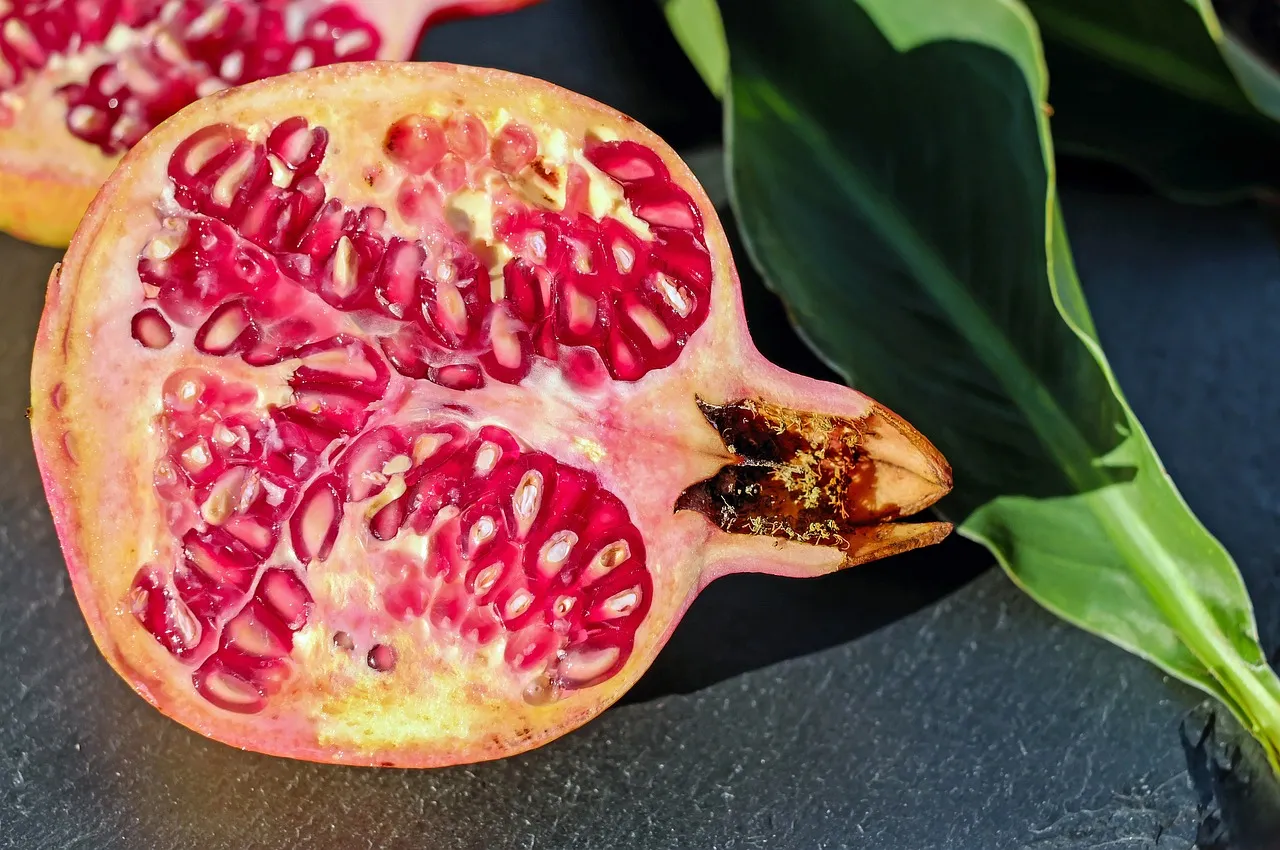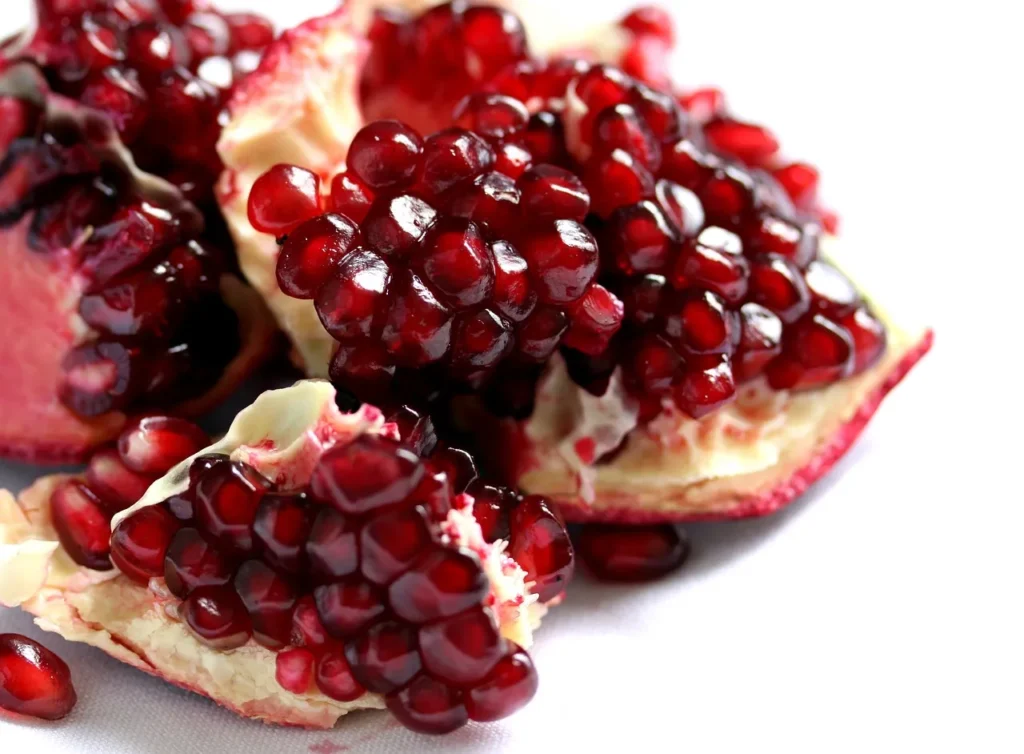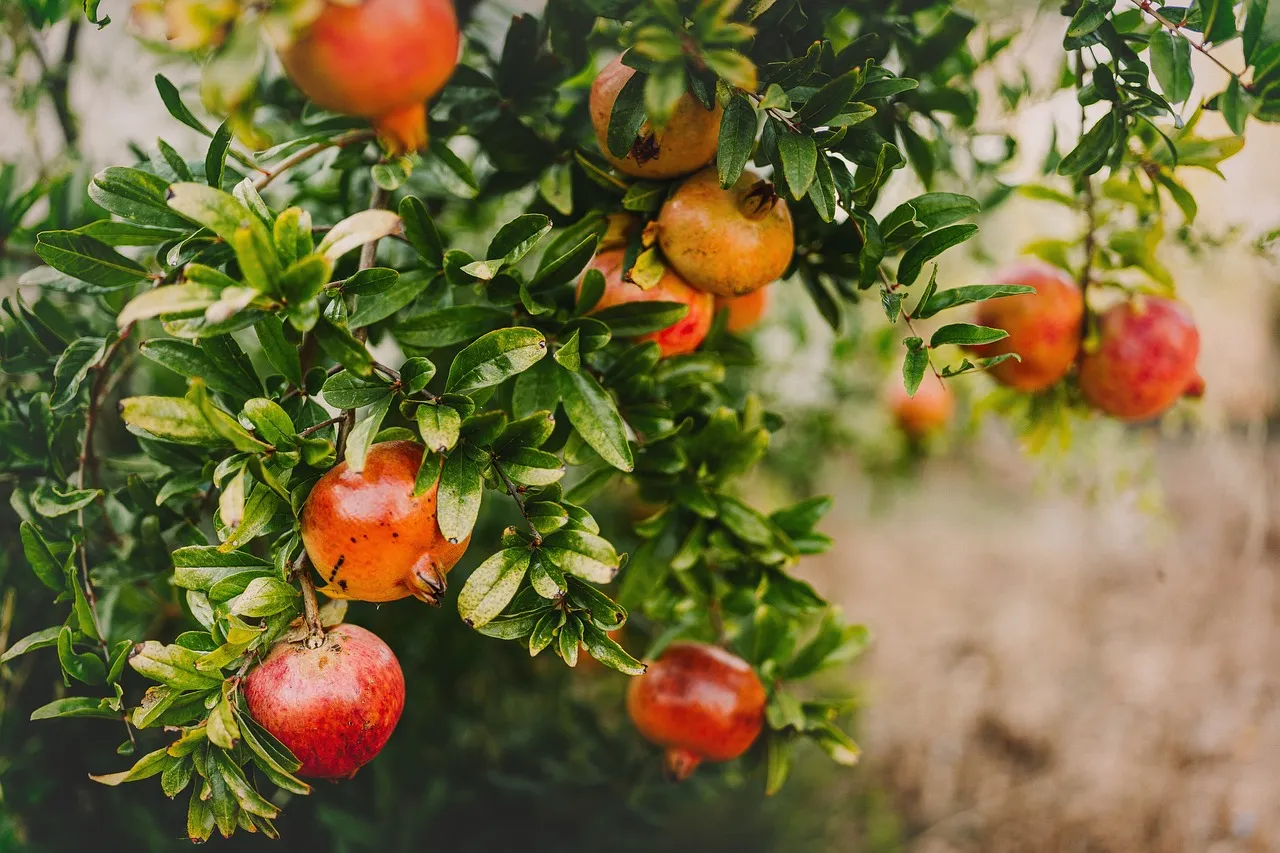In the verdant landscape of organic agriculture, the cultivation of pomegranates stands as a testament to sustainable and eco-friendly farming practices. This comprehensive guide explores the rich tapestry of organic pomegranate farming, diving into the diverse varieties that flourish in Indian climates and offering detailed insights into best practices for optimal yield.
Understanding the Organic Pomegranate Landscape

In delving into the intricacies of the organic pomegranate landscape, we embark on a fascinating journey that spans the geographical diversity of India. This landscape is not merely a physical terrain but a mosaic of climates, soils, and ecosystems, each influencing the cultivation of pomegranates in distinctive ways. As we navigate through this diverse expanse, we encounter a myriad of pomegranate varieties, each with its own story to tell and a role to play in the rich tapestry of organic farming.
Climatic Considerations:
The organic pomegranate landscape is deeply intertwined with the climatic nuances of the Indian subcontinent. From the arid regions of Rajasthan to the humid coastal areas of Kerala, different pomegranate varieties find their niche. Understanding the intricacies of these climates is paramount for farmers seeking to optimize their yields organically. Factors such as temperature, rainfall, and sunlight exposure become pivotal considerations in selecting the most suitable varieties for a particular region.
Varietal Diversity:
Our exploration extends to the heart of the organic pomegranate landscape – the rich array of varieties that thrive in Indian climates. The Bhagwa variety, revered for its vibrant red arils and sweet taste, often finds its home in Maharashtra’s semi-arid regions. Meanwhile, the Ganesh pomegranate, with its robust resistance to diseases, flourishes in the humid environs of Andhra Pradesh. This diversity isn’t just a matter of taste; it’s a strategic approach to adapting to the varied climates across the nation.
Soil Preferences:
Unraveling the secrets of the organic pomegranate landscape involves understanding the very foundation upon which these trees stand – the soil. Different varieties exhibit preferences for specific soil types, be it the well-drained soils of Karnataka or the loamy soils of Punjab. Soil health becomes a focal point in organic farming practices, emphasizing the importance of enriching the soil with organic matter and maintaining a balanced nutrient profile to support optimal pomegranate growth.
Culinary Significance:
Beyond the agricultural aspect, the organic pomegranate landscape holds cultural and culinary significance. Varieties like the Mridula, known for its moderate size and deep-red arils, become not just fruits but storytellers of the regions they hail from. Understanding the culinary preferences associated with each variety adds a layer of appreciation for the organic pomegranate landscape – a landscape where flavor, tradition, and agriculture converge.
In unraveling the organic pomegranate landscape, we don’t just comprehend the physical geography; we decipher the intricate dance between nature and cultivation. This understanding becomes a compass for farmers, guiding them in selecting the right varieties, implementing organic practices, and fostering a sustainable relationship with the land. It’s more than farming; it’s a harmonious collaboration with nature in the organic symphony of pomegranate cultivation.
Exploring Pomegranate Varieties Suited for Indian Climates
Venturing into the exploration of pomegranate varieties tailored for the diverse climates of India unveils a captivating panorama of horticultural diversity. The dynamic topography and varied climate zones create an ideal canvas for an assortment of pomegranate cultivars, each with its own set of characteristics and adaptability factors.

The Bhagwa Pomegranate:
Heralded for its vibrant and enticing red arils, the Bhagwa pomegranate stands as a charismatic emblem of Maharashtra’s semi-arid landscapes. Thriving in warm temperatures and arid conditions, this variety has become synonymous with the heartiness and sweetness that define the culinary appeal of Indian pomegranates. Its adaptability to regions with limited water availability makes it a preferred choice for organic farmers navigating the challenges of sustainable cultivation.
The Ganesh Pomegranate:
In the humid terrains of Andhra Pradesh and Telangana, the Ganesh pomegranate takes center stage. Renowned for its resilience against diseases, this variety gracefully weathers the challenges posed by fungal infections and bacterial diseases that often accompany high humidity. The Ganesh pomegranate’s ability to thrive in regions with abundant rainfall showcases its suitability for climates where other varieties may falter.
The Mridula Pomegranate:
Moving across the vast expanse of India, we encounter the Mridula pomegranate, a cultivar that finds its place in the loamy soils of Punjab. This moderately sized variety boasts deep-red arils, adding a visual allure to its culinary significance. The Mridula variety’s adaptability to the fertile soils of the northern plains positions it as a key player in the region’s pomegranate cultivation landscape.
Climate-Specific Varietal Selection:
Exploring pomegranate varieties suited for Indian climates involves a nuanced understanding of the specific needs of each cultivar. Farmers, armed with this knowledge, can make informed decisions based on their region’s climatic conditions, ensuring optimal yields and robust orchard health. The versatility of these varieties not only caters to the diverse climates but also adds a layer of culinary diversity, allowing consumers to savor unique flavors cultivated in harmony with nature.
Adaptation Strategies:
Varietal exploration is not just about identifying the characteristics of each pomegranate type; it’s also about devising strategic approaches to adaptability. Organic farmers, in their pursuit of sustainable practices, leverage this knowledge to choose varieties that align with their climate, soil, and water resources. This strategic approach not only ensures a bountiful harvest but also fosters a harmonious relationship between agriculture and the environment.
In the exploration of pomegranate varieties suited for Indian climates, we unearth not just fruits but a testament to nature’s resilience and the agricultural wisdom passed down through generations. Each variety tells a story of adaptation, culinary richness, and a harmonious coexistence with the vibrant tapestry of India’s climates. As we delve into the specifics of each cultivar, we witness the flourishing of pomegranate orchards as a symphony of flavor, sustainability, and regional uniqueness.
Nurturing Pomegranate Orchards through Organic Practices
Detailed Insights into Organic Farming Practices:

Organic farming is more than a methodology; it’s a commitment to sustainable and eco-friendly practices. In this section, we provide a roadmap for nurturing pomegranate orchards organically. From soil preparation enriched with organic matter to natural pest control measures, we emphasize practices that promote environmental harmony. The use of organic fertilizers, cover crops, and companion planting techniques takes center stage, offering a holistic approach that not only safeguards the environment but also enhances the nutritional quality of the pomegranates.
Emphasizing Sustainability:
Sustainability is the cornerstone of organic farming, and as stewards of the land, farmers play a pivotal role. We delve into the importance of water conservation, crop rotation, and biodiversity in maintaining a resilient and sustainable pomegranate orchard. The integration of eco-friendly technologies and the reduction of carbon footprints further underscore the commitment to responsible farming practices.
Conclusion
In the grand tapestry of organic pomegranate farming, each variety and every sustainable practice contributes to a narrative of environmental consciousness and agricultural excellence. As we conclude our exploration, envision a future where the flavors of Bhagwa and Ganesh pomegranates coalesce with the essence of sustainable farming, creating a harmonious symphony of taste and responsibility. “Organic Farming of Pomegranates: Varieties and Best Practices” serves not just as a guide but as a manifesto for a future where the land thrives, and the fruits it bears are a testament to the synergy between nature and agriculture.
#PomegranateFarming #FarmingIndia #OrganicFarming #Pomegranates
